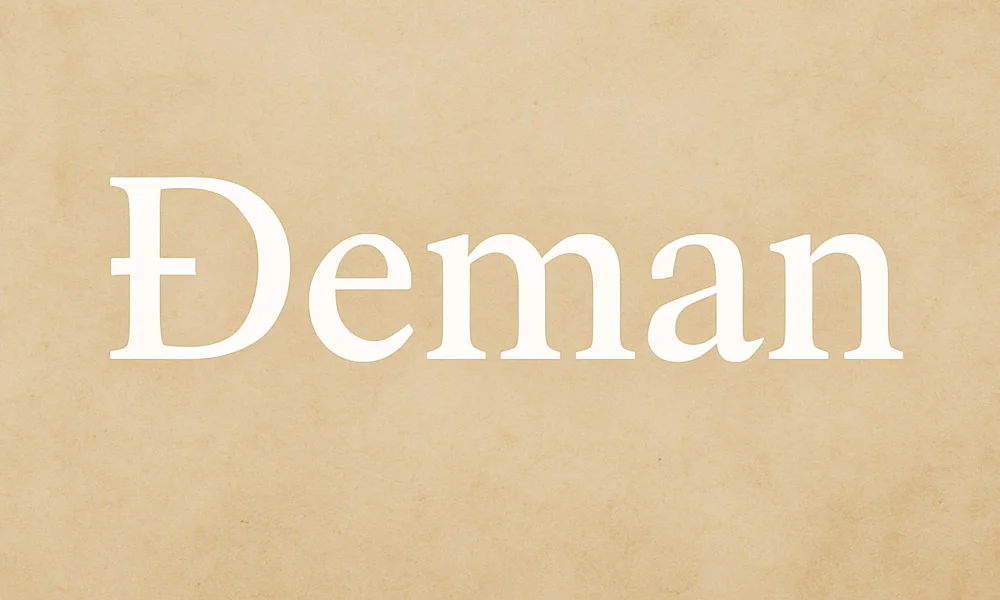Across Southeast Asia, the cultural landscape is rich with traditions, customs, and festivals that connect communities to their roots. Among these cherished celebrations, Đeman holds a meaningful and spiritual place, particularly in Vietnam. This unique festival is centered around honoring ancestral spirits, expressing gratitude, and reinforcing the connection between the living and those who came before.
In this article, we will explore what Đeman is, its origins, how it’s traditionally celebrated, its cultural significance, and why it continues to be an essential part of Vietnamese and Southeast Asian heritage today.
What is Đeman?
Đeman is a traditional festival that revolves around ancestral worship — a practice deeply ingrained in many Asian cultures. It’s an occasion for families to gather, pay respects to their forebears, and invite ancestral spirits to return home for a short period. The festival serves both spiritual and social purposes: honoring ancestors while bringing families together in unity.
While specific practices might vary slightly by region, the core of Đeman remains consistent — it’s a heartfelt expression of gratitude and remembrance for those who laid the foundations of the present generation.
The Origins of Đeman
The history of Đeman traces back centuries, rooted in the longstanding beliefs of ancestor veneration in Southeast Asia. Many communities in Vietnam and neighboring regions have upheld the conviction that ancestral spirits continue to watch over the living. Maintaining harmony with these spirits is believed to bring peace, prosperity, and protection to families.
Traditionally held in rural villages and towns, Đeman would coincide with significant points in the lunar calendar, often during the harvest season or specific lunar months believed to be auspicious for communicating with the spirit world.
How Đeman is Celebrated
The celebration of Đeman involves several key rituals and customs. These practices are often passed down through generations and observed with care and reverence. Below is a detailed look at how this meaningful festival is typically celebrated:
1. Cleaning the Ancestral Altar
In most Vietnamese homes, an ancestral altar is a sacred space. In preparation for Đeman, families thoroughly clean the altar, replace incense sticks, arrange fresh flowers, and polish family heirlooms. This act signifies respect and readiness to welcome the spirits.
2. Preparing Offerings
A central part of Đeman is the preparation of offerings to present to ancestral spirits. These usually include:
- Cooked meals featuring traditional dishes
- Seasonal fruits
- Tea, rice wine, and sweets
- Incense sticks and candles
- Paper money and symbolic items made of paper
These offerings are arranged neatly on the altar, accompanied by prayers and respectful bows.
3. Lighting Incense and Inviting Ancestors
On the festival day, family members gather at the altar to light incense and bow in unison. Prayers are offered to invite the spirits of departed ancestors to visit their former home, enjoy the offerings, and bless the family.
4. Family Feast
After the formal prayers and offerings, families often enjoy a communal meal featuring the foods prepared for the altar. It’s a time to share stories, reconnect with relatives, and reflect on family history.
5. Visiting Graves
In some communities, families visit the graves of their ancestors during Đeman. Graves are cleaned, flowers are laid, and incense is burned at the burial site, reaffirming the bond between generations.
Cultural Significance of Đeman
The importance of Đeman extends beyond ritual and symbolism. It’s a festival that strengthens family values, cultural continuity, and community bonds. Here’s why it remains so significant:
1. Honoring Family Heritage
Đeman offers a chance to remember family members who paved the way for the present generation. By paying homage to ancestors, people express gratitude for the sacrifices and achievements of those who came before.
2. Preserving Traditional Values
The festival teaches younger generations about respect for elders, the importance of family unity, and the value of cultural customs. Through participation, these values are preserved and carried forward.
3. Spiritual Well-being
Many believe that maintaining a harmonious relationship with ancestral spirits ensures good fortune, protection from harm, and guidance in difficult times. Đeman provides a dedicated occasion to renew this connection.
4. Community Togetherness
In villages and smaller towns, Đeman is often celebrated collectively. Neighbors exchange food, share stories, and participate in communal prayers. It reinforces solidarity and strengthens social ties.
Modern Observance of Đeman
While urbanization and modernization have changed aspects of daily life in Southeast Asia, festivals like Đeman continue to be observed, both in traditional settings and adapted forms. In cities, families still maintain home altars and perform ancestral rites, though large communal gatherings might be less common.
Younger generations, even those living abroad, often mark the occasion by lighting incense, preparing offerings, and joining video calls with family members to pay respects collectively. Many cultural organizations and communities abroad host public Đeman events, preserving the tradition across borders.
Differences Between Đeman and Other Festivals
Đeman shares similarities with other ancestor worship festivals in Asia, such as Qingming Festival in China and Obon in Japan, but it remains distinct in its timing, rituals, and regional customs. Key differences include:
- Local Dishes: Specific traditional foods prepared during Đeman differ from those in neighboring countries.
- Timing on the Lunar Calendar: Đeman may be observed at different times of the year depending on the region.
- Community Involvement: In some Vietnamese regions, Đeman is closely tied to village festivals and local temple ceremonies, adding a communal religious dimension.
The Enduring Relevance of Đeman
Despite rapid modernization, Đeman has proven to be a resilient tradition. Its themes of family unity, gratitude, and remembrance resonate across generations. The enduring popularity of this festival reflects the deep-rooted belief in maintaining a strong connection with one’s ancestors and heritage.
As people seek meaning and continuity in an ever-changing world, Đeman offers a valuable reminder of where they come from and the enduring ties of family and community.
Final Thoughts
Đeman is far more than a cultural custom; it’s a heartfelt tradition that honors the past while nurturing the present. From carefully arranged offerings to shared family meals and prayers at ancestral altars, the festival embodies the timeless values of respect, gratitude, and unity.
By observing Đeman, families not only remember their loved ones but also reaffirm the values and traditions that shape their cultural identity. As newer generations continue to participate and adapt these customs, the spirit of Đeman lives on, ensuring that the bonds between the living and the departed remain unbroken.
Whether in a rural Vietnamese village or a modern city apartment, the simple act of lighting incense and offering a humble meal during Đeman carries a message of love and remembrance that transcends time.



